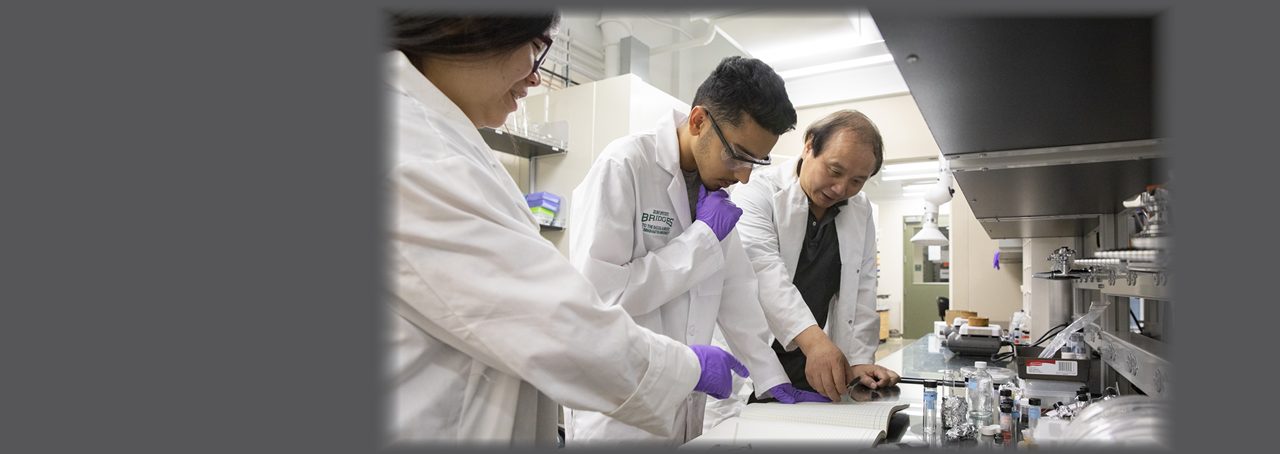SUNY Technology Accelerator Fund announces Class of 2018 awards
Faculty innovators across the State University of New York (SUNY) system are tackling everything from Alzheimer’s disease to engine emissions. The SUNY Technology Accelerator Fund (TAF) announced six new projects that are receiving investments from as part of its 2018 investment cycle. The technologies selected span groundbreaking advancements in diagnostics, vaccines, chemical manufacturing and new materials.
TAF strategically invests in SUNY’s most disruptive innovations developed by faculty, staff, and students to accelerate their development and commercialization into products and services that touch peoples’ lives.
A significant obstacle to the commercial development of university technology is the lack of funding for promising discoveries after government-sponsored support ends and before a licensee or venture-capital support is secured. The TAF program helps to bridge that gap for SUNY researchers.
“We are extremely excited for all of the teams that were awarded a TAF Class of 2018 investment – receiving an investment is very competitive,” said Matthew Mroz, TAF Managing Director and Director of Enterprise Technology Transfer for The Research Foundation for SUNY. “TAF advances the commercial readiness of SUNY innovation and ultimately enables the development of new products and services that will impact lives.”
Since its launch in 2011, the TAF has invested over $2 million to successfully advance the commercial readiness of 45 SUNY-developed innovations and has catalyzed the investment of an additional $7.8 million from external partners, including federal agencies, industry licensees and angel investors.
Funding proposals submitted by SUNY faculty, staff, and student were evaluated by the TAF managing director with input from external experts in various fields of science and business development. Factors considered for the awards include: availability of intellectual property protection, marketability, completion of a customer discovery process, commercial potential, feasibility, and breadth of impact. TAF targets critical research and development milestones – such as feasibility studies, prototyping and testing – which demonstrate that an idea or innovation has commercial potential.
The SUNY TAF 2018 Awardees:
- Alzheimer’s Disease Diagnostic, University at Albany – Dr. Igor Lednev is perfecting a technique that uses a simple blood test and analysis under Raman spectroscopy to detect Alzheimer’s disease (AD). The quick, inexpensive and non-invasive technology is unique in that it can identify AD without extensive testing using brain imaging technologies or spinal fluid extractions. With TAF’s investment Dr. Lednev will optimize the diagnostic tool and validate it clinically with his partners at the Alzheimer’s disease Center at Albany Medical Center.
- Staph Infection Vaccine, University at Buffalo – Dr. Blaine Pfeifer, professor of chemical and biological engineering, has developed a platform technology to develop smarter and more cost-effective vaccines that provoke both a strong immune response and are engineered to overcome limitations of current vaccine products. Working closely with his commercialization partner, Abcombi Biosciences, TAF’s investment will enable Dr. Pfeifer to utilize his vaccine platform to construct a vaccine to protect against staph infections, adding another vaccine product to Abcombi’s existing portfolio, which includes a pneumococcal vaccine and a flu therapy.
- Green Process for Synthesizing Imine Building Blocks for Pharmaceuticals, SUNY Oneonta and SUNY Geneseo – Dr. Jacqueline Bennett, professor of chemistry at SUNY Oneonta, invented a green chemistry process that improves safety and efficiency in manufacturing specialty chemicals across many industries. The process has been proven for a library of over 300 imine compounds suitable as feed stock materials for pharmaceutical drugs and other products. Together with Dr. Eric Helms, associate professor of chemistry at SUNY Geneseo, and Verdimine, the research team’s startup partner, this TAF investment will be used to scale-up production of green chemicals using Dr. Bennett’s patented process to further validate the commercial opportunity and send samples to partners in the supply chain.
- New Catalyst Technology for Emission Control Systems, Binghamton University – Dr. Chuan-Jian Zhong has nanoengineered a multi-metallic alloy that operates at a much lower temperature and uses 50 percent less platinum group metals (PGM) than commercially available catalysts. The new material lowers manufacturing costs and increases catalytic efficiency. TAF’s investment will enable the research team to synthesize samples for internal validation by a list of potential industry players that have expressed a commercial interest in Dr. Zhong’s new class of catalysts.
- Video Eye Tracking Method, Downstate Medical Center – Dr. Stephen Macknik, professor of ophthalmology and Dr. Nicolas Brunet, research professor of cell biology and ophthalmology, are developing a next-generation method of video eye tracking with a resolution nearly 100 times more precise than is currently available. The technology represents a platform for neurological disease detection, assistive communications, and cognitive assessment as well as virtual reality entertainment and flight training. TAF’s investment will enable further validation of the technology, specifically focusing on providing the data and analysis potential industry partners have requested.
- SnappyXO Robotics Framework, Stony Brook University – Dr. Anurag Purwar, research associate professor of mechanical engineering created a design-driven educational robotics framework called Snappy XO that provides people – young and old – with an easy-to-use platform to build robots. Dr. Purwar and his commercialization partner are initially targeting high school students and college undergraduates who have an interest in STEM education, specifically robotics and engineering. TAF’s investment will enable several dozen kits to be manufactured for delivery to summer camps and programs to further validate the demand and excitement for a simple, easy-to-use, and low-cost robotics kit.
comments powered by Disqus


